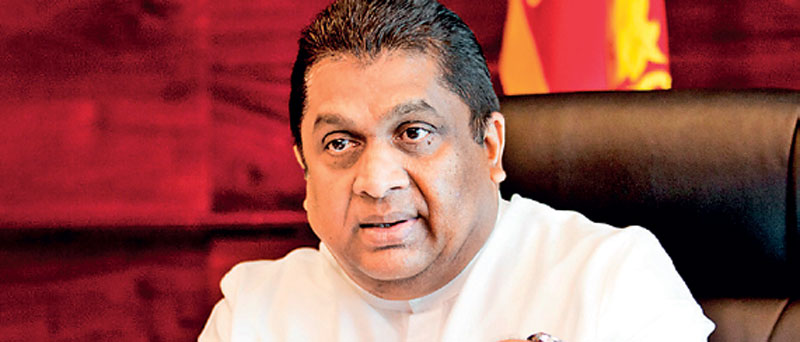Sunday Feb 22, 2026
Sunday Feb 22, 2026
Saturday, 23 October 2021 00:50 - - {{hitsCtrl.values.hits}}

Cooperative Services, Marketing Development and Consumer Protection State Minister Lasantha Alagiyawanna
Despite the unfair rice and sugar price increase seen in the market, the Government has turned a deaf ear to the consumers’ cry on the ever-increasing cost of essential food items.
“We have not yet taken any decision to re-impose the Maximum Retail Price (MRP),” Consumer Protection State Minister Lasantha Alagiyawanna told the Daily FT.
Traders have increased sugar prices, ignoring stricter laws and fines brought in to enforce the MRP under the new Consumer Affairs Act.
The price of sugar has increased to Rs. 230 at present despite Government attempts to keep the price of white sugar at Rs. 122 and brown sugar at Rs. 125 per kilo – brown sugar is being sold at between Rs. 138 and Rs. 140 per kilo. As per the Central Bank, a significant decline was observed in the expenditure of sugar imports in August.
In a related development, the country’s staple food – rice – has also seen a sharp price increase.
Following the cancellation of the gazette on MRP, large-scale rice millers in September announced the new retail price, which saw the price of Samba increasing by 36%, or Rs. 37 per kilo, to Rs. 140, and Keeri Samba by Rs. 40, or 32%, to Rs. 165. The poor man’s Nadu will cost 17%, or Rs. 17, more at Rs. 115 per kilo. However, it seems that the large-scale rice mill owners have jacked up prices once more, with Samba being sold at Rs. 150, Keeri Samba around Rs. 220, and Nadu at Rs. 125.
As per the new Consumer Affairs Act, the maximum fine charged from an individual business for a first-time offence has been increased from Rs. 10,000 to Rs. 500,000. Individual businesses will be fined a maximum of Rs. 1 million for a subsequent offence.
This amount previously stood at Rs. 20,000. The maximum fine for a company for a first-time offence has been raised from Rs. 100,000 to Rs. 5 million. The maximum fine imposed on companies for a subsequent offence has been increased from Rs. 200,000 to Rs. 10 million.
It has also been reported that traders are hoarding sugar stocks to be sold at an inflated price at a later date.
In August, President Gotabaya Rajapaksa declared emergency regulations and appointed the Essentials Services Commission to counter the hoarding of sugar, rice, and other essential foods.
The Government has defended the enforcement of emergency regulations to deal with the food crisis, though the move has come under heavy criticism from the Opposition.
Amidst all these strict measures taken by the authorities, consumers charge that the Government has failed to protect them and are instead supporting the fraudulent traders.
The Central Bank last week said expenditure on the importation of food and beverages increased by 12.3% in August 2021 (YOY), with the increase primarily stemming from vegetables (mainly lentils and onions), dairy products (milk powder), seafood (mainly dried sprats and frozen fish), spices (chillies), and miscellaneous food and beverages.
